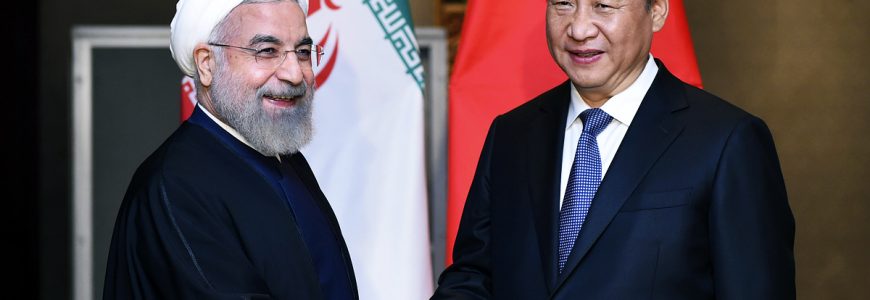
In May, President Donald Trump announced that he was pulling the United States out of the Iran nuclear deal. A few weeks later, U.S. Secretary of State Mike Pompeo outlined the administration’s aggressive new Iran policy, which was designed to prevent the country’s emergence from isolation. This strategy, the Trump administration believes, will force Iran to return to the table and make a “bigger and better” deal that addresses the president’s concerns with the existing agreement. For Tehran, a full economic recovery and renewed ties with Western countries now seem unlikely. But this doesn’t mean that the Trump administration’s plans will succeed.
For the better part of two decades, Iran’s leadership has been hedging against international isolation by developing deeper ties with China and Russia. Today, as Washington once again seeks to tighten the screws, Tehran sees its relationship with Beijing as key to remaining afloat. China has announced it will likely continue importing oil from Iran, even after the United States moves to cut down Iranian oil sales down to zero by November. And Chinese engagement with Iran might pave the ground for others to follow suit, which would undermine the new U.S. pressure campaign.
LONG-TERM RELATIONSHIP
Chinese officials often characterize their relationship with Iran as “20 centuries of cooperation,” but the two countries’ contemporary partnership began in the final days of monarchical rule in Iran. In August 1978, the chair of the Chinese Communist Party (CCP), Hua Guofeng, traveled to Iran—the first time that a Chinese communist leader visited a non-communist country. Although the Islamic revolution toppled Shah Mohammad Reza Pahlavi just a few months later, Hua established a basis for cooperation that would outlast the shah. After the revolution, Hua quickly made amends with the new regime by apologizing for his earlier visit and expressing his desire for greater ties with the Islamic Republic. After the Iran hostage crisis and the country’s subsequent international isolation, China became a vital partner. During the Iran-Iraq War, which lasted from 1980 to 1988, China was a key arms supplier to the Iranians. And in the decades that followed, it slowly but surely established itself as a major player in Iran’s economy, trade relations, foreign policy, and military affairs.
In the mid-2000s, when the United States and its partners began ramping up sanctions in an effort to curtail Iran’s nuclear program, Beijing undermined U.S. efforts by providing the struggling country with economic relief, a direct channel to the UN Security Council, and military support. This relationship was mutually beneficial. China saw Iran as a major source of energy and an important market. Iran’s position at the crossroads of the Middle East, South and Central Asia, and Europe, along with its access to the Persian Gulf and the Strait of Hormuz, made it significant to China’s vision of integrating these key regions through infrastructure and transportation projects designed to expand Chinese political and economic influence.

